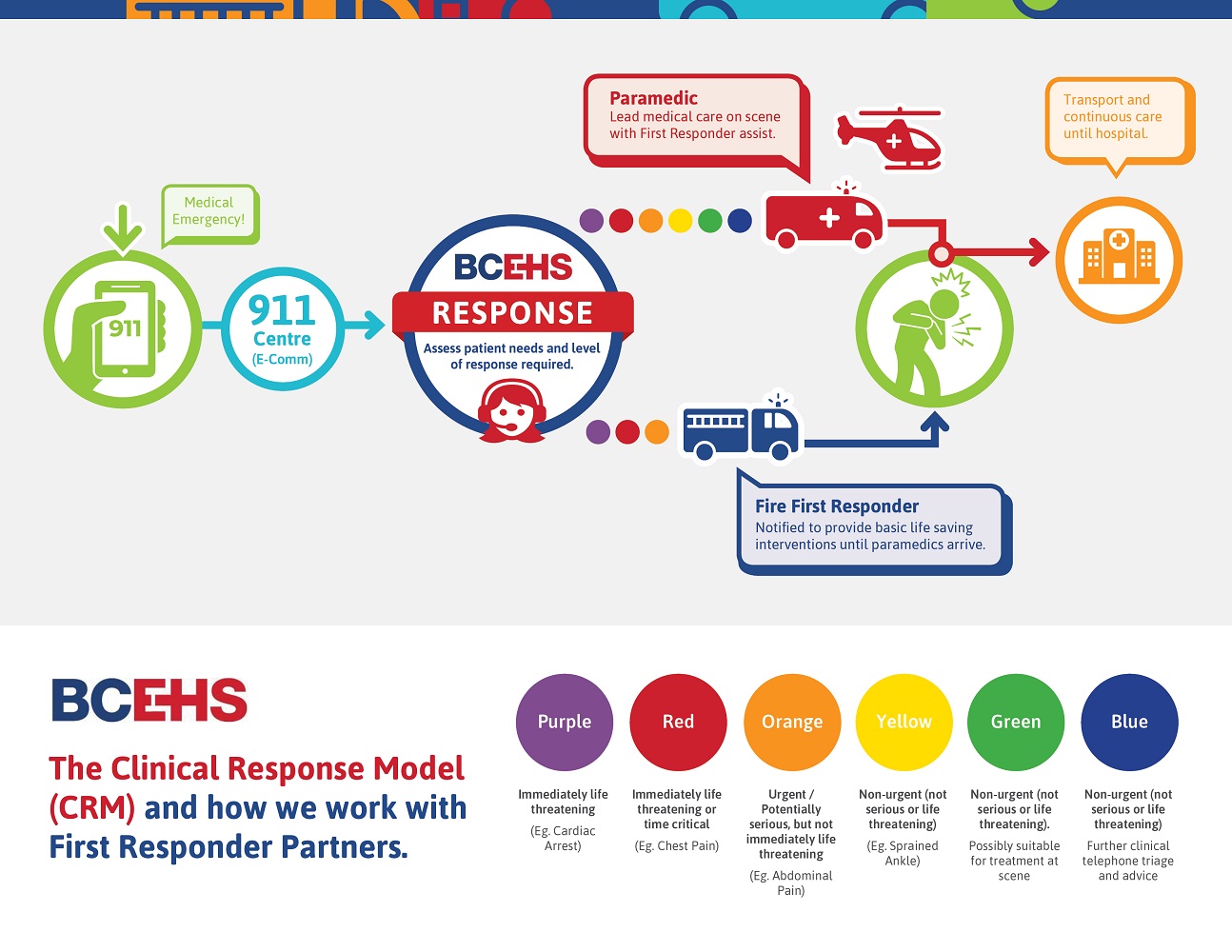See below for an
infographic.
When a patient calls 9-1-1 for an ambulance, paramedics are dispatched based on the caller’s description of their medical condition or injury. BC Emergency Health Services (BCEHS) emergency medical call-takers quickly assess the severity of the patient’s condition and assign paramedics, ambulances and other resources to the call.
For time-critical calls, BCEHS notifies first responders who have agreements with BCEHS. BCEHS has agreements in place with first responder agencies across the province.
Municipalities cover the costs of sending municipal resources such as fire crews to emergency calls. The first responder agency decides what 9-1-1 calls they will attend, often based on timing and available resources.
We notify first responders of all extremely time-critical calls, as well as:
- Any call involving burns, hazmat, or a motor vehicle accident
- Any mid-level acuity call (serious but not as time-critical) where BCEHS is likely to take more than 10 minutes to arrive at a scene
- Any call with a clinical or operational need for first responder expertise, such as an environmental or safety risk, or in the case where a paramedic crew request first responder backup
The support provided by first responders during medical emergencies is an essential part of the delivery of emergency health services to the people of B.C. First responders provide basic life-saving techniques, such as cardiopulmonary resuscitation (CPR), defibrillation and administration of naloxone before BCEHS paramedics take over a patient’s care.
BCEHS paramedics have a high level of medical expertise and training and are the lead on patient care when on scene. They continue to deliver medical care as patients are taken to hospital.
As health care professionals, paramedics are directly tied into hospital emergency departments, and are connected to, and guided by, emergency physicians.
Click on the image to see a larger version.

